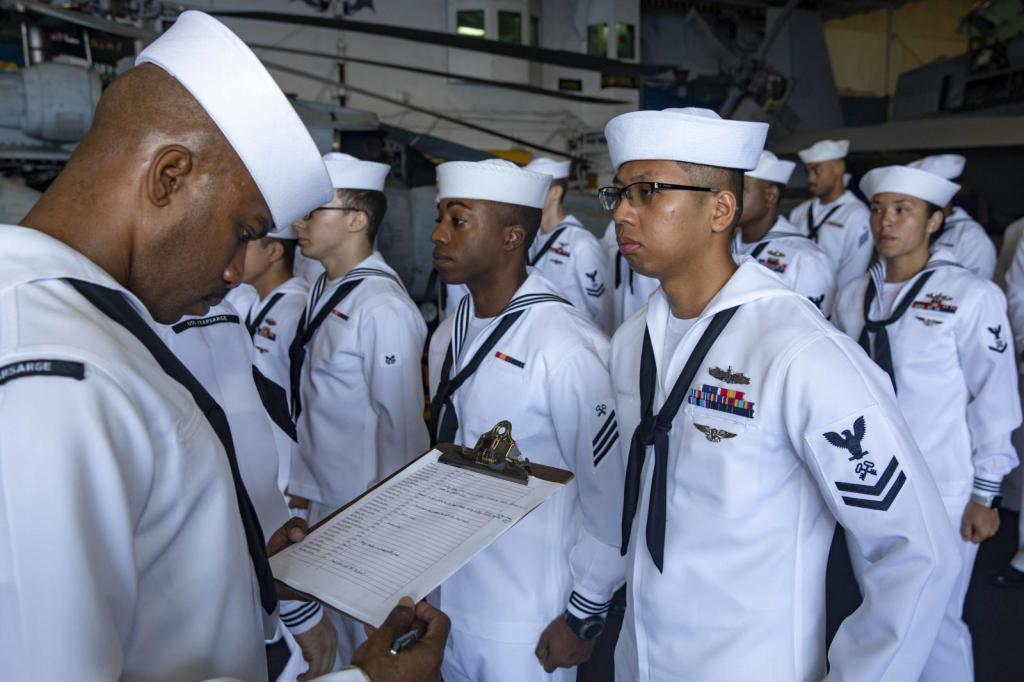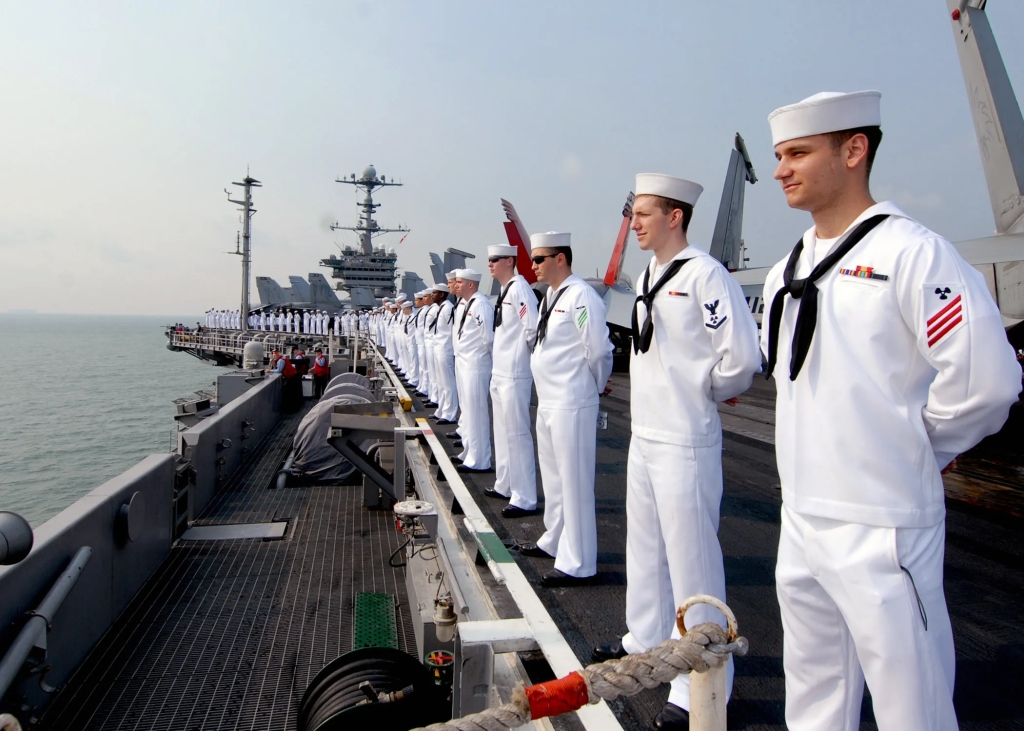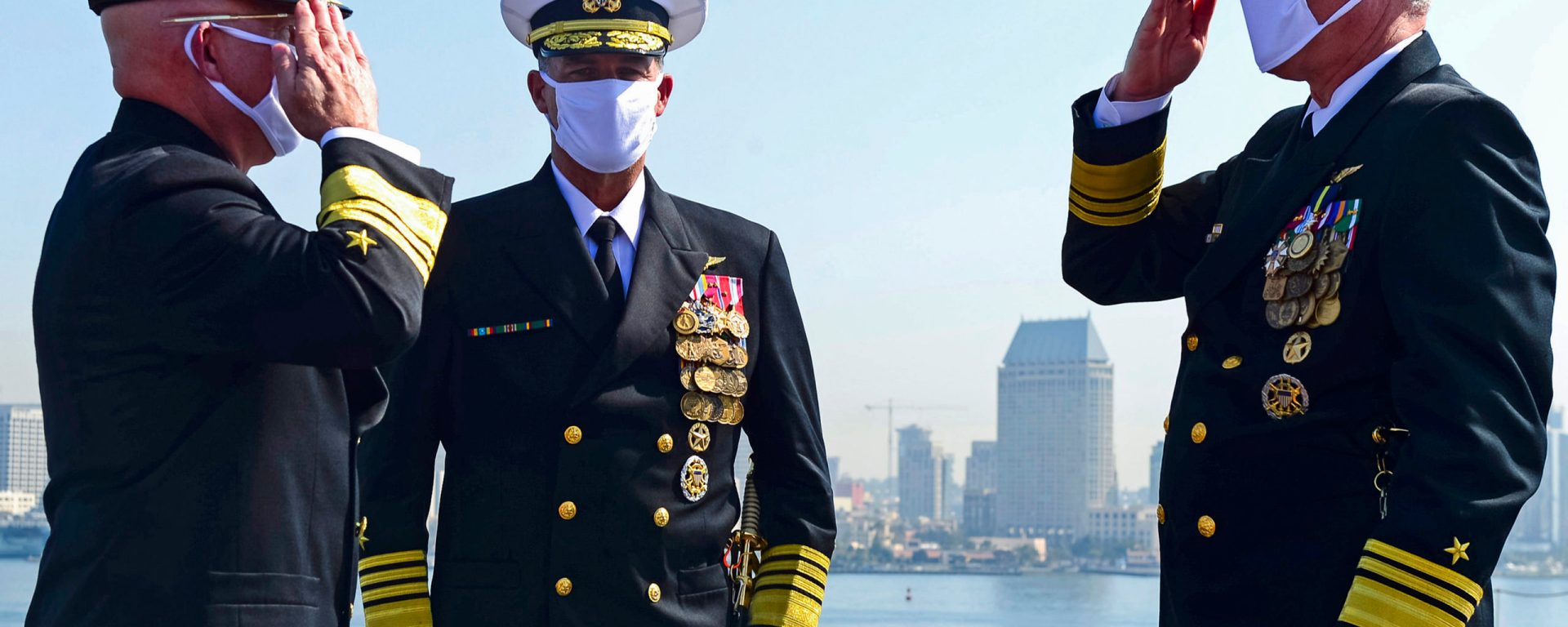
The use of traditional leadership concepts in the modern Navy is a flawed idea. The Navy no longer utilizes a traditional structure; it’s now structured around a business model. During the Navy’s inception, leadership was a quality found in a person through qualitative measures, such as combat victories and mission accomplishments. In the modern Navy, they quantify the concept of leadership, yet poorly define it. The Navy uses terms such as initiative, teamwork, and leadership and evaluates them on a 1-5 scale, pretending abstract values are measurable quantities. The Navy is no longer based on tradition, yet uses tradition as the basis behind its business model, and basing the nation’s maritime defense force upon a business model is flawed straight from the onset. This concept has led to a worker and manager value imbalance, favoritism, and politics replacing work ethic.
The Navy, in the most basic terms, is made up of workers and managers at different levels of management. It mirrors a standard business, assigning traditional terms to modern corporate positions such as “Leading Petty Officer” in place of manager and “Chief of Naval Operations” in place of Chief Executive Officer.
Need Help With Your Editing? Click Here

The problem starts before sailors even arrive at their first duty station. Sailors are not assigned to a ship based on a job opening; they are assigned based upon a set quota, which often involves technical qualifications. The chain of command forces them to aggressively pursue responsibilities once they arrive, even if there’s no additional help needed. You don’t have a job title, so you are supposed to follow people around asking intrusive questions and forcing people to make extra work for you, like putting you in charge of trash. Therefore, from day one, everybody is put at odds with everybody else because they have no choice. They are expected, from day one, to pursue training, without the experience or resources to know what is expected of them. A new sailor is always assigned many menial tasks, yet expected to go out of their way to receive training. If they don’t train themselves well enough, they’re blamed for lacking expected knowledge related to the qualification. This lack of knowledge is automatically the sailor’s fault. After all, they are expected to take the initiative and seek out these resources, because they are supposed to desire the leadership position. Initiative is one of the abstract qualities that qualifies somebody as a leader. Sailors are assigned leadership positions due to an advancement that tests for technical or other job-related knowledge; not leadership ability. Since they are now considered leaders, they are subject to constant criticism. The ones advanced due to knowledge alone will often lack the desire to lead because they are simply not leaders – they are workers or technicians. Becoming a leader is not an option in the Navy, so they are left with no choice but to find a way to become a leader.
On ships, the first level of management for most ratings is the “Work Center Supervisor”. In technical ratings, these work centers are based upon different types of systems. If you are the WCS, you are expected to be knowledgeable about every system in the work center, regardless of the training, you have received because it is easier to blame a person for lacking the leadership quality of initiative, rather than the command being held accountable for the lack of training they have provided. This manager is expected to effectively train and assign tasks to their workers, and supervise the work they do. Trusting your workers is not what a good leader does. This manager is now enabled to take full credit for all the work that is done by the worker because humility and concern are not quantifiable traits. There is no incentive to credit workers. There is no regulation forcing the manager to do anything, so they have full right to make the workers do everything while doing nothing themselves, but they will still be valued more highly because they are in the leadership position. Therefore, there is no incentive to work, as long as they give off the perception of leadership. A formula could theoretically be developed for success in the Navy.

Since the rules are not defined for how you evaluate a sailor, you could advance based solely upon favoritism. In a normal business, this would be fine, but the Navy has full control of every aspect of a person’s life, therefore is responsible for the “whole person”, not just the professional. An independent person that is not concerned about acceptance from their boss is not going to put forth the effort to be likable. This leads to systematic favoritism, resulting in leaders with poor work ethics. The humble worker that values work accomplishment above praise goes unnoticed. Where is the desire for advancement if you don’t respect the leadership in charge? The lack of respect stems from the fact that all the independent, hard-working sailors are now getting phased out because they are getting sick of playing the game, full of favoritism and formulas, and would rather take their talents elsewhere. What is left is a Navy full of politicians. The “work hard, play hard” sailors of the past are getting kicked out because they are unmotivated, politically incorrect, and “alcohol dependent”, when, at one time, they were the same sailors respected for winning the wars. So now you have a Navy full of politicians that are writing counseling chits over dirty jokes and crying during training exercises.
What would happen if this world had another actual war? What would these “sailors” do if they had a mission more demanding than maintaining “presence”? These leaders that have spent their entire careers “showing face” are the same ones crying after their bosses yell at them. You can always spot them from a mile away. They yell the loudest, but they can’t hide that scared, confused look in their eyes. The mere act of looking them in the eye as they try to tear you to pieces is an act of subversion. So then, you want a guy like this on a tug boat floating on brown water with you in the jungles of Cambodia?

The refute to this point of view is that competition encourages productive results and tradition encourages a sense of pride in one’s work. The Navy does have a proud tradition and many achievements. This is thanks in large part to the great leaders of the past. John Paul Jones and David Farragut are two great examples of the Navy’s historical excellence in leadership. Michael Murphy is a great modern example. These leaders are the reason why the tradition was a great benchmark for leadership in the past. However, that was the past and we are living in the present.

The business model works for a business, and tradition works for the Navy, but combining them to define Naval leadership is the cause of its inherent flaw. If you want to structure the Navy on a business model, you have had to go the whole way and drop tradition entirely. Leaders of the past were promoted based upon the qualities they possessed that, per tradition, warranted their advancement. The qualities of initiative, teamwork, and leadership were based upon acts and accomplishments, not abstract quantities. Workers below them were also valued but not expected to be leaders. This maintained camaraderie and put people in charge that deserved it. Leadership has become nothing more than a quality that you will never possess but must always aspire to achieve. It is an excuse to criticize the sailor and make them feel bad about themselves because they don’t possess this abstract ideal that has never been adequately defined. It can turn good people into bad people, promote negative treatment of compatriots, and create a toxic environment that condemns personal growth in favor of a lazy evaluation system. This is why the modern concept of leadership in the Navy is flawed.
Need Help With Editing? Click Here



